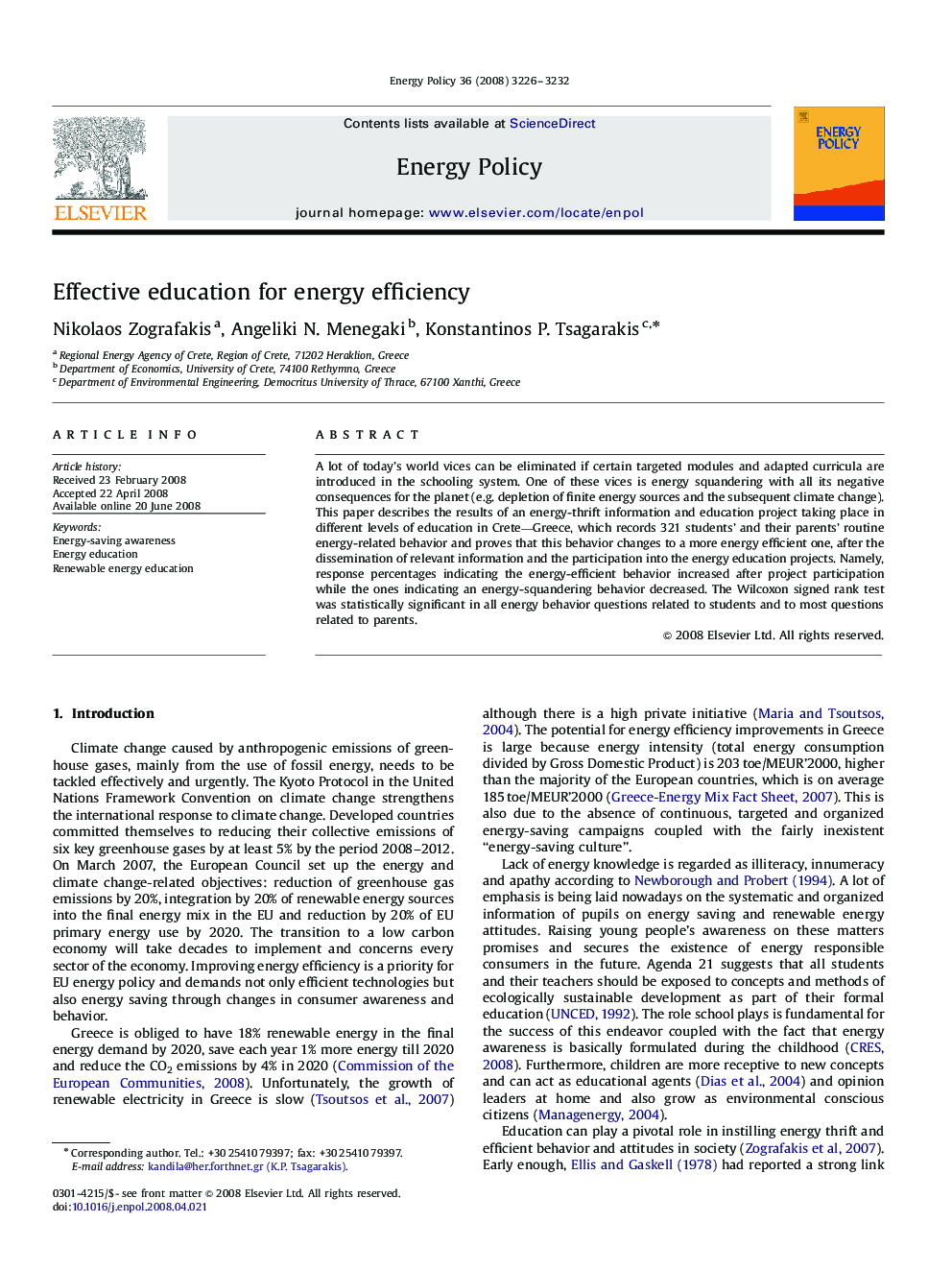| Article ID | Journal | Published Year | Pages | File Type |
|---|---|---|---|---|
| 997118 | Energy Policy | 2008 | 7 Pages |
A lot of today's world vices can be eliminated if certain targeted modules and adapted curricula are introduced in the schooling system. One of these vices is energy squandering with all its negative consequences for the planet (e.g. depletion of finite energy sources and the subsequent climate change). This paper describes the results of an energy-thrift information and education project taking place in different levels of education in Crete—Greece, which records 321 students’ and their parents’ routine energy-related behavior and proves that this behavior changes to a more energy efficient one, after the dissemination of relevant information and the participation into the energy education projects. Namely, response percentages indicating the energy-efficient behavior increased after project participation while the ones indicating an energy-squandering behavior decreased. The Wilcoxon signed rank test was statistically significant in all energy behavior questions related to students and to most questions related to parents.
